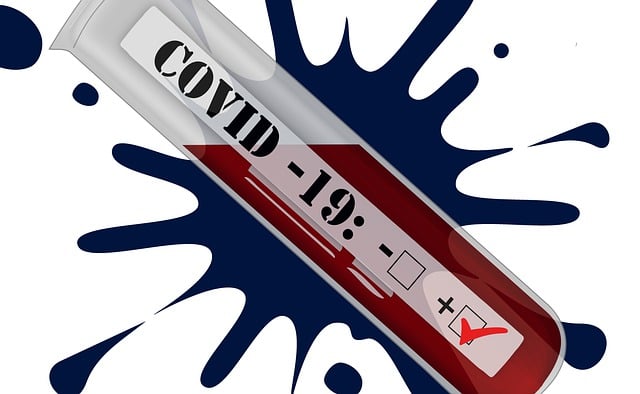Understanding male hormone dynamics, especially through the Diabetes Blood Test UK, is vital for managing reproductive health issues. Hormones like testosterone significantly affect fertility, sexual development, and libido. Abnormalities like low testosterone (hypogonadism) or high oestrogen levels can cause erectile dysfunction and sexual dysfunctions. Regular blood testing via the Diabetes Blood Test UK is crucial for early diagnosis of conditions like hypogonadism in men, particularly those with diabetes. This test assesses hormonal imbalances, helps diagnose diabetes or pre-diabetes, and guides treatment focused on addressing root causes for improved fertility and well-being.
Male hormone level analysis plays a pivotal role in diagnosing reproductive issues. Understanding these levels and their impact on fertility is crucial. In the UK, the Diabetes Blood Test emerges as a significant tool for evaluating hormonal imbalances, offering valuable insights into overall reproductive health. This comprehensive guide delves into how this test, along with advanced diagnostic processes, aids in identifying and treating conditions related to hormone levels, ultimately enhancing reproductive outcomes.
- Understanding Male Hormone Levels and Their Role in Reproductive Health
- Diabetes Blood Test UK: A Key Indicator for Evaluating Hormonal Imbalances
- Diagnostic Process and Treatment Options for Reproductive Issues Related to Hormone Levels
Understanding Male Hormone Levels and Their Role in Reproductive Health
Understanding male hormone levels is crucial in navigating reproductive health issues, as these hormones play a pivotal role in various bodily functions, including fertility and sexual development. Testosterone, for instance, is the primary sex hormone in men, responsible for muscle mass, bone density, fat distribution, and libido. A simple Diabetes Blood Test UK can provide insights into these levels, helping to diagnose and treat conditions like hypogonadism or hormone imbalances that may impact fertility.
Abnormalities in male hormones can lead to a range of reproductive issues. Low testosterone (hypogonadism) can cause decreased sperm production, erectile dysfunction, and reduced libido. On the other hand, high levels of certain hormones, such as oestrogen, can also contribute to problems like infertility and sexual dysfunctions. Regular monitoring through blood tests is essential for men, especially those with existing health conditions like diabetes, as these can influence hormone regulation.
Diabetes Blood Test UK: A Key Indicator for Evaluating Hormonal Imbalances
In the UK, a Diabetes Blood Test serves as a crucial indicator for evaluating hormonal imbalances, especially in relation to reproductive health issues. This test measures blood glucose levels and is essential for diagnosing diabetes or pre-diabetes conditions, which can significantly impact male hormone balance. Imbalances in insulin production or sensitivity can lead to various metabolic disorders that, in turn, affect the production of key reproductive hormones like testosterone.
Given its central role in metabolizing carbohydrates and fats, a Diabetes Blood Test UK provides valuable insights into overall health, including hormonal dynamics. Abnormal results from this test may signal underlying conditions that require medical attention, such as insulin resistance or type 2 diabetes. Early identification of these issues can facilitate timely interventions to prevent or manage hormonal imbalances, thereby enhancing reproductive health outcomes for men.
Diagnostic Process and Treatment Options for Reproductive Issues Related to Hormone Levels
The diagnostic process for reproductive issues related to hormone levels typically involves a comprehensive evaluation. This often starts with a detailed patient history and physical examination, where healthcare professionals consider symptoms like irregular periods, infertility, or sexual dysfunction. Subsequent steps may include specific blood tests, such as a Diabetes Blood Test UK, to measure hormone concentrations, including testosterone, estrogen, and progesterone. These hormones play pivotal roles in reproductive health, and their imbalances can lead to various conditions like polycystic ovary syndrome (PCOS) or thyroid disorders.
Once a hormonal imbalance is identified, treatment options cater to the underlying cause. For diabetes, managing blood sugar levels through lifestyle changes, medication, or insulin therapy is crucial. In cases of PCOS, approaches may include medication to regulate hormones, lifestyle modifications, and sometimes surgical interventions. The goal is to restore hormone equilibrium, thereby addressing the reproductive issues and enhancing overall fertility and well-being.
Male hormone level analysis, especially through the Diabetes Blood Test UK, plays a pivotal role in diagnosing and treating reproductive issues. By understanding hormonal imbalances, medical professionals can offer tailored treatment options, enhancing fertility and overall reproductive health. This comprehensive approach ensures that individuals receive the best possible care for their unique needs.
